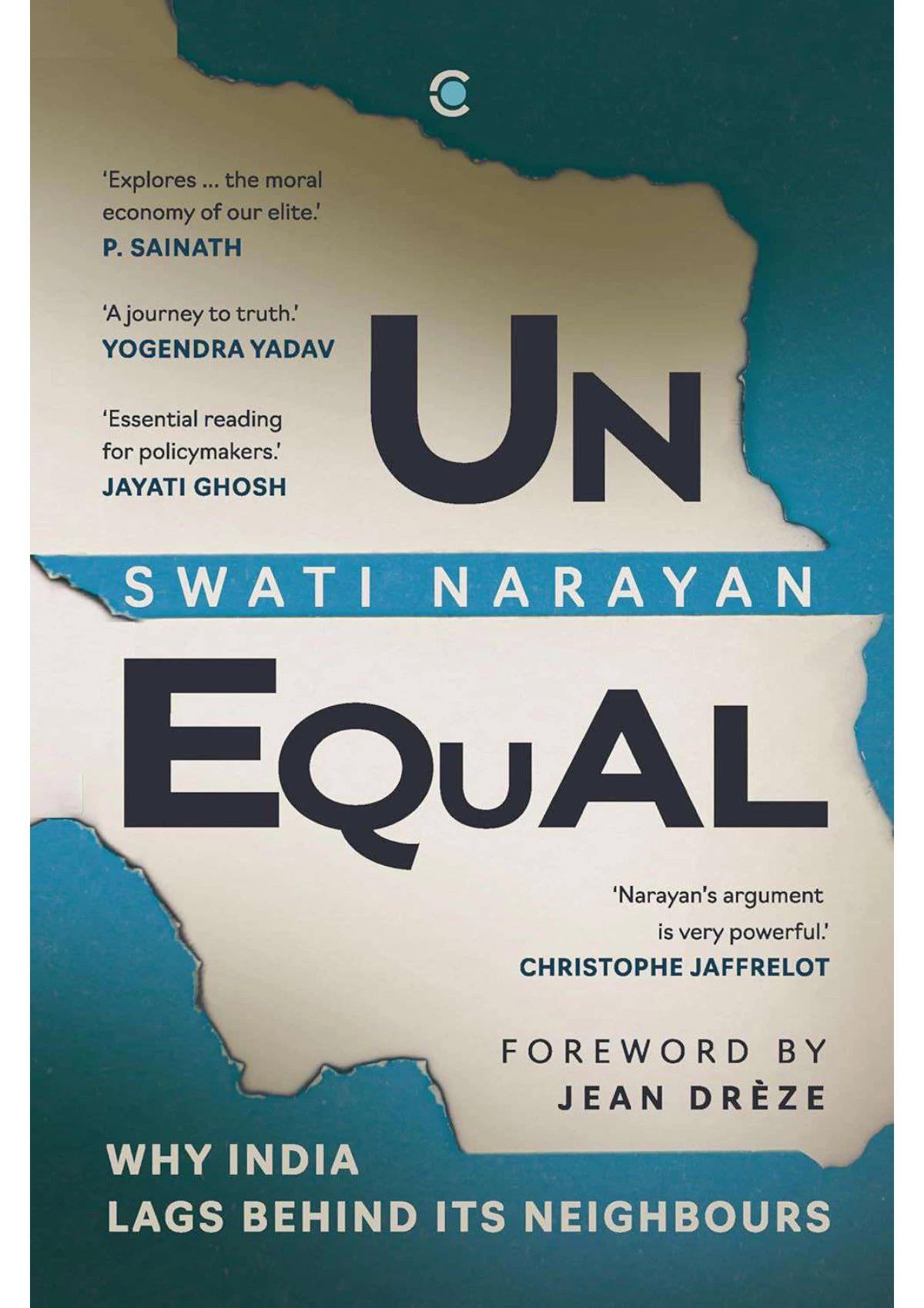
Unequal Book
‘Explores … the moral economy of our elite.’ — P. Sainath
‘A journey to truth.’ — Yogendra Yadav
‘Essential reading for policymakers.’ — Jayati Ghosh
‘Narayan’s argument is very powerful.’ — Christophe Jaffrelot
‘These are rich insights, for India and far beyond, on what it takes to turn economic resources into flourishing lives for all.’ — Kate Raworth
‘One of the most extraordinary, yet often ignored, stories of international development …’ — Duncan Green
‘This is comparative social science at its best.’ — Olivier De Schutter
‘[A] true roadmap to enlightenment with equality, justice and freedom.’ — Saloni P. Singh
‘With this remarkable blend of scholarship and reportage from India’s borders, Swati Narayan shows us the consequences of Indian policymaking on the lives of its citizens.’ — Rahul Bhatia
‘[A] gripping tale … A must-read for people interested in the future of South Asia.’ — Ahmed Mushtaque Raza Chowdhury
Foreword by Jean Drèze
A newborn girl can expect to live to eighty in Sri Lanka, seventy-four in Bangladesh and sixty-nine in India. This is but one of a range of Swati Narayan’s insights from a five-year study across four countries: India, Bangladesh, Nepal and Sri Lanka. She found that even poorer neighbours were doing better than India on a range of social indicators: health, nutrition, education, sanitation, with more women working outside the home.
Narayan’s intensive, immersive research shows that India’s leapfrogging neighbours have worked hard to dilute social inequalities. Land reforms, investments in schools and hospitals, and socio-political reform movements aimed at diluting caste and gender discrimination – all of these have wrought change over the decades. Excellent networks of primary healthcare clinics, village schools and household toilets have transformed the lives of citizens in these countries.
In economically booming India, on the other hand, social ills like sex-selective abortion, child stunting, illiteracy and preventable deaths are rampant. Inequalities are stark here—not only between the burgeoning billionaire class and the neglected masses, but also among the northern states and their southern counterparts. However, it is in fact the successes in states like Tamil Nadu and Kerala that offer grounds for optimism—India is capable of transformation if governments commit to social welfare investments and bridging social inequities.
Packed with human stories as well as hard data, and shot through with empathy and hope, Swati Narayan’s Unequal is a necessary book for our times.
About the Author
Swati Narayan is an academic and activist. She is an alumna of the Tata Institute of Social Sciences, School of Oriental and African Studies and London School of Economics and Political Science. Her research and opinion articles have been published in The Indian Express, The Hindu, The Telegraph, Hindustan Times, The Guardian blog, Prospect magazine, Economic and Political Weekly, Gender and Development and several other journals and publications.
Swati currently lives in Haryana and Delhi.